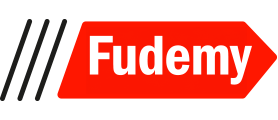What
You’ll Learn
You’ll Learn
- Master Effective Communication Techniques – Learn strategies for clear
- professional communication that fosters collaboration and understanding
- Develop Leadership Skills to Shape Workplace Culture – Discover how leadership styles influence and build a positive organizational culture
- Implement Diversity
- Equity
- and Inclusion (DEI) Practices – Gain insights into DEI initiatives to promote inclusivity and respect in the workplace
- Enhance Employee Engagement through Recognition and Flexibility – Explore ways to boost employee motivation with recognition programs and work-life balance solu
Requirements
- Basic Understanding of Workplace Dynamics – Familiarity with general workplace operations and roles will help participants engage fully with the course content
- Interest in Leadership
- Culture
- or Communication – A desire to enhance skills in leadership
- organizational culture
- or communication is beneficial for engaging with course material.
- Access to a Professional or Academic Environment – Having a workplace
- internship
- or academic setting to apply concepts will reinforce learning outcomes.
- Willingness to Participate in Group Discussions and Activities – Engaging with peers to discuss ideas and complete exercises is essential for practical understanding.
Description
In today’s dynamic business world, fostering a strong corporate culture and effective communication skills are essential for organizational success. This course, “Corporate Culture & Communication,” is designed for professionals, managers, and aspiring leaders who want to enhance their understanding of workplace dynamics, cultural values, and communication strategies that drive collaboration, inclusivity, and productivity. By building on the foundational elements of corporate culture and communication, this course offers valuable insights and tools to help you shape a positive work environment that empowers teams, encourages transparency, and aligns with ethical principles.
Key Topics Covered:
-
Understanding Corporate Culture: Dive into the different types of organizational culture—clan, adhocracy, market, and hierarchy—and learn how each impacts workplace interactions and decision-making. Understanding corporate culture helps employees at all levels recognize how values, rituals, and behavioral norms contribute to a unique workplace identity. You’ll explore how core values and mission statements shape a company’s reputation and influence employee engagement, loyalty, and satisfaction.
-
Effective Communication Strategies: Discover practical communication techniques to improve both internal and external interactions. This includes understanding the nuances of top-down, bottom-up, and cross-departmental communication, as well as digital communication strategies essential in today’s remote and hybrid work settings. You’ll also learn about active listening, providing constructive feedback, and using inclusive language to foster a respectful and collaborative work environment.
-
Building a Positive Workplace through Diversity, Equity, and Inclusion (DEI): An essential component of modern organizational culture is DEI initiatives. This course explores the role of DEI in promoting fairness, reducing bias, and building a more diverse workplace that supports different backgrounds and perspectives. By creating an inclusive work environment, leaders can drive innovation and foster a sense of belonging among team members.
-
Leadership’s Role in Culture Building: Learn how leadership style impacts corporate culture and how leaders at all levels can shape a culture that aligns with organizational values. This module covers various leadership styles, from transformational to servant leadership, and how each can influence the work environment, employee motivation, and team cohesion. You’ll gain insights into modeling the behaviors that reinforce a positive culture and align with corporate goals.
-
Employee Engagement and Recognition: Employee recognition is essential for motivation and job satisfaction. This course highlights the role of performance management, feedback, and recognition programs in promoting a culture where employees feel valued and engaged. You’ll explore strategies for implementing effective reward systems that encourage productivity and demonstrate appreciation.
-
Flexibility, Autonomy, and Work-Life Balance: Finally, we address the growing importance of flexibility, autonomy, and work-life balance in modern workplaces. You’ll learn how to establish flexible working practices and grant autonomy in a way that boosts productivity while supporting employees’ personal needs, leading to higher retention and job satisfaction.
Learning Outcomes:
By the end of this course, you’ll have the knowledge and skills to:
-
Identify and shape your organization’s culture to enhance collaboration and inclusivity.
-
Implement effective communication strategies for a productive and supportive work environment.
-
Promote DEI initiatives to create a fair and respectful workplace.
-
Apply leadership techniques that reinforce positive behaviors and align with corporate values.
-
Recognize and reward employees effectively to boost engagement and loyalty.
-
Incorporate flexibility and autonomy to support work-life balance and employee satisfaction.
Enroll in “Corporate Culture & Communication” today and take a crucial step toward creating a cohesive, productive, and motivated workplace that thrives on ethical values, open communication, and a commitment to inclusivity.
Who this course is for:
- Aspiring and Current Managers – Individuals looking to strengthen their leadership skills and build a cohesive
- motivated team environment.
- Human Resources Professionals – Those who want to foster a positive corporate culture
- implement DEI initiatives
- and enhance employee engagement.
- Team Leads and Supervisors – Leaders seeking practical tools to improve communication
- manage performance
- and promote work-life balance within their teams
- New Professionals and Recent Graduates – Early-career individuals eager to understand the essentials of workplace culture and effective communication strategies.
- Anyone Interested in Organizational Development – Individuals passionate about improving workplace dynamics
- inclusivity
- and productivity.






